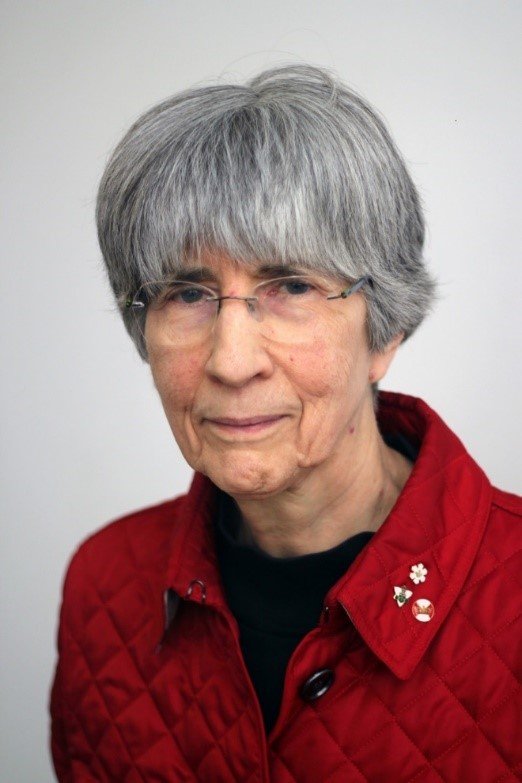
Zahinoor Ismail
Dr. Ismail is Chair of The Canadian Conference on Dementia (CCD) and of the Canadian Consensus Conference on the Diagnosis and Treatment of Dementia, which generates Canadian dementia guidelines, the most recent iteration of which were published in 2020. He is also the Academic Co-chair of the US Alzheimer’s Association-ISTAART Neuropsychiatric Syndromes Professional Interests Area. Dr Ismail led the ISTAART development of the neurobehavioural syndrome Mild Behavioural Impairment (MBI) and the MBI Checklist, and co-led development of the new research criteria for biomarker and phenotypic classification of psychosis in AD and related dementias. Dr. Ismail is a contributor to international working groups advancing nosology in neurodegenerative diseases. He is an author on the revised IPA criteria for Psychosis in Neurocognitive Disorders, ISCTM-ISTAART criteria for Apathy in Neurocognitive Disorders, and the upcoming revision of the IPA criteria for Agitation in Neurocognitive Disorders.

Sandra Black
Dr. Black is a Professor of Medicine (Neurology Division) at Sunnybrook Health Sciences Centre, University of Toronto, and is an internationally known cognitive and stroke neurologist. She has published >650 peer publications in a research career bridging dementia and stroke, using standardized, cognitive, functional and behavioural measures, and neuropathology to study brain-behavior relationships. She was a recipient of the Distinguished Achievement Award of American Academy of Neurology’s Society of Cognitive and Behavioural Neurology and also UBC’s 2022 Margolese Brain Disorders prize, recognizing Canadians who have made outstanding contributions to amelioration and treatment of brain disorders. She was also appointed Member of the Order of Ontario in 2011 and Officer in the Order of Canada in 2015 for her contributions to Alzheimer’s disease, stroke and vascular dementia. She is ranked 8th nationally and 281 in the world of the top 1000 female scientists by Research.com, a leading academic platform for researchers (2024).

Howard Chertkow
Dr. Chertkow is a practicing cognitive neurologist at the Baycrest Health Sciences Centre, where he Is also Senior Scientist and Chair in Cognitive Neurology and Innovation at Baycrest’s Rotman Research Institute (now Baycrest Academy for Research and Education). Until 2018 he was a neurologist at McGill University and the Jewish General Hospital in Montreal. He is a Professor in the Dept. of Medicine (Neurology) at University of Toronto. At Baycrest he is also director of the new Bank Family Clinical Trials Research Unit and the recently opened Kimel Family Centre for Brain Health, a facility that works to prevent future dementia in people at risk. His major areas of research interest include early diagnosis of Alzheimer’s Disease, subtypes of dementia, and therapy of cognitive disorders in Alzheimer Disease and Frontotemporal dementia using neuromodulation approaches such as transcranial direct current stimulation. Dr. Chertkow is on Stanford University’s 2020 list of “Top 2% Cited Scientists”. Since 2014 Dr. Chertkow has been the Scientific Director for the Canadian Consortium on Neurodegeneration in Aging (CCNA), a national organization established by the Canadian government via CIHR and partners. CCNA brings together 400 leading Canadian dementia researchers to establish national teams and platforms to produce breakthroughs in the diagnosis and treatment of the dementing illnesses.

Mary-Pat McAndrews
Dr. McAndrews, PhD.is a Senior Scientist and Head of the Division of Clinical and Computational Neuroscience at the Krembil Research Institute, the Director of Operations at the Slaight Family Centre for Advanced MRI at the University Health Network, and Professor in the Department of Psychology, University of Toronto. A clinical neuropsychologist, she has developed a research program focusing on memory networks, using functional neuroimaging, studies of patients with medial temporal lobe dysfunction, and brain stimulation techniques to understand how these networks are organized and modified by focal damage or therapies. A major translational goal of this research is to identify individual difference factors contributing to vulnerability or resilience that will enable better therapeutic targeting and prognosis.

Eric Smith
Dr. Smith is Professor of Neurology, Radiology, and Community Health Sciences at the University of Calgary, and the holder of the endowed Katthy Taylor Chair in Vascular Dementia. He directs the Cognitive Neurosciences Clinic at Foothills Medical Centre in Calgary, Alberta, Canada. Dr. Smith is a member of the Steering Committee of the 5th Canadian Consensus Conference on the Diagnosis and Treatment of Dementia, Research Executive Committee of the Canadian Consortium on Neurodegeneration in Aging (ccna-ccnv.ca; Canada’s federally funded national dementia research network), and is a member of the Board of Directors of the Canadian Consortium of Centres for Clinical Cognitive Research (c5r.ca; a national dementia clinical trials network). He has been the site principal investigator (PI) for numerous trials in Alzheimer’s disease and dementia at the University of Calgary. His investigator-initiated research program seeks to understand vascular contributions to Alzheimer’s disease and dementia. He has more than 550 peer-reviewed publications, with an H index of 130 on Google scholar.

Gary Naglie
Dr. Naglie is a Professor in the Division of Geriatric Medicine, Department of Medicine and the Institute of Health Policy, Management and Evaluation at the University of Toronto. He is the Vice President of Medical Affairs & Chief of Staff, and Chief of the Department of Medicine at Baycrest Health Sciences. He is a Scientist at Baycrest’s Rotman Research Institute. His research focuses on driving issues in older adults with cognitive impairment and dementia, and on the development and evaluation of new models of care for older adults. Dr. Naglie has been a Co-Lead with Dr. Mark Rapoport of the Driving and Dementia Research Team for the Canadian Consortium on Neurodegeneration in Aging.

Robin Hsiung
Dr. Hsiung is Associate Professor in the UBC Division of Neurology and Behavioural Neurologist in the UBC CARD. His research interests include genetic risk factors, biomarkers, and cognitive assessments tools in the diagnosis of Alzheimer Disease and Frontotemporal dementia. Dr. Hsiung currently also serves as the president of the Canadian Centres for Clinical Cognitive Research (C5R), a non-profit organization that facilitates clinical trials conduction and collaborative research studies in dementia across Canada. His research contributions have appeared in over 180 peer-reviewed publications.

Serge Gauthier
Dr. Gauthier is Emeritus Professor in Neurology and Psychiatry at McGill University. Previously he has been Director of the McGill Centre for Studies in Ageing and holder of a Research Chair at the Canadian Institute for Health Research, Clinical Investigator and Staff Neurologist at the Montreal Neurological Hospital and Institute. His research interests include aetiology and treatment of Alzheimer’s disease and related diagnosis, development of consensus guidelines on approval and use of antidementia drugs, and on the rights of persons living with dementia to participate in research. His contributions to research include design and implementation of randomized clinical trials to establish the safety and efficacy of cholinesterase inhibitors, muscarinic agonists, memantine and agents possibly modifying progression of Alzheimer’s disease. He is a recipient of the Prix Galien Award in 1997, the Order of Canada in 2014 and the Order of Québec in 2017.better therapeutic targeting and prognosis.

Jacqueline Pettersen
Dr. Pettersen is a Cognitive Neurologist and Associate Professor with the University of British Columbia and affiliate Associate Professor with the University of Northern BC, in her hometown of Prince George. She received her training from the University of Victoria (BSc Honours Biopsychology; MSc Neuropsychology), University of Toronto (MD; Clinical Research Fellowship under Dr Sandra Black) and University of Calgary (Neurology Residency). Nutrition and its role in cognition has been one major focus of her research, particularly the importance of vitamin D and other micronutrients. She has won international research awards for this work. Other areas of research focus have included vascular contributions to brain health/cognition and exercise in dementia involving collaborations with colleagues at the University of British Columbia, the University of Northern British Columbia, the University of Toronto, the University of Waterloo and Dalhousie University.

Zahra Goodarzi
Dr. Goodarzi is an academic geriatrician. Her work has focused on mental illness and neuropsychiatric symptoms in older adults or those with neurodegenerative disorder. She also examines the experiences of older adults living in supportive living and long term care with frailty, concomitant mood disorders or neuropsychiatric symptoms. Her current work looks at the development of clinical pathways for mood disorders, frailty and dementia across the care continuum in clinic, long term care and emergency room. She is co-lead for the Geriatric Emergency Medicine Team – working on quality improvement and implementation of evidence based interventions to help older adult care.

Saskia Sivananthan
Dr. Sivananthan, an internationally recognized strategy and policy advisor on dementia care, is the co-founder and CEO of the Brainwell Institute – a nonprofit dementia policy think tank. She is also an Affiliate Professor at McGill University. She was formerly Chief Research and KTE Officer at the Alzheimer Society of Canada where she oversaw a tripling of funding for dementia research and created multiple platforms for people living with dementia to engage in research, advocate and co-design programming for their needs. In 2020 she was appointed by the Federal Minister of Health to the ministerial advisory board on dementia. Previously, Dr. Sivananthan served as a senior strategy and policy advisor consulting for the World Health Organization (WHO) on its overall global dementia strategy. Dr. Sivananthan co-drafted the WHO’s Global Action Plan on the Public Health Response to Dementia which was unanimously adopted at the 170th World Health Assembly by all 194 member-states. This plan served as the template for Canada’s National Dementia Strategy. Dr. Sivananthan is a neuroscientist and health data scientist.

Dylan Guan
Dylan Guan is an MD/PhD student at the University of Calgary. He holds an Honours Bachelor of Science from the University of Toronto, with a major in Neuroscience and minors in Physiology and Psychology. Dylan is a Vanier Scholar, Killam Laureate, and has received doctoral awards from the Alzheimer’s Society Research Program, Vascular Training Platform (VAST), and Hotchkiss Brain Institute. Dylan serves as an Alzheimer’s Association ISTAART Ambassador, Communications Chair of the ISTAART Neuropsychiatric Syndromes Professional Interest Area, and Curriculum and Conference lead of VAST. His research focuses on better understanding early clinical manifestations of Alzheimer’s disease, including cognitive, behavioral, sensory, and motor changes.

Brad Lohman
Mr. Brad Lohman is a Registered Psychiatric Nurse with a Master of Nursing in Health Administration. With over 33 years of Nursing experience, Brad’s unwavering passion for supporting seniors and their families has guided every step of his career. In 2018, Brad co-founded Vytality at Home, a Calgary-based home care company dedicated to helping older adults live well at home. As Co-President, he has helped grow the organization to a team of over 150 dedicated employees, all committed to delivering personalized, compassionate care. Brad has also played a pivotal role in the design and development of several key geriatric care initiatives, including the Alzheimer and Dementia Resource Clinic (ADRC), the Geriatric Assessment and Support Clinic (GAS), and the Community Geriatric Team through The Primary Care Network. He also serves as the Program and Educational Chair on the Board of Directors for the Gordie Howe Center for Alzheimer’s Research and Education Society, where he recently launched the CAPS (Caregiver and Patient Support) pilot program to better assist Caregivers and families navigate the dementia journey. Recognized for his clinical expertise and compassionate approach; he takes great pride in meeting new clients and offering practical strategies to help patients and clients maintain their independence and quality of life.
